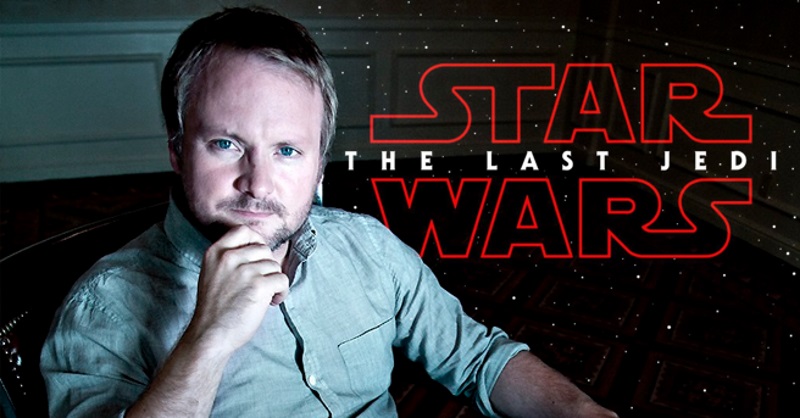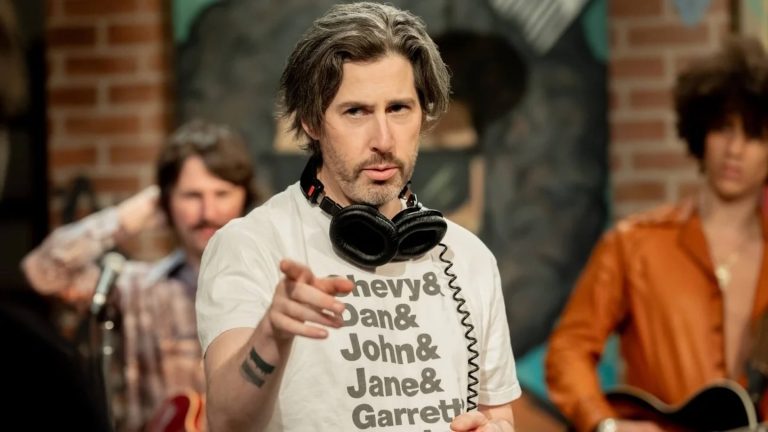Screenwriting Advice From THE LAST JEDI's Rian Johnson
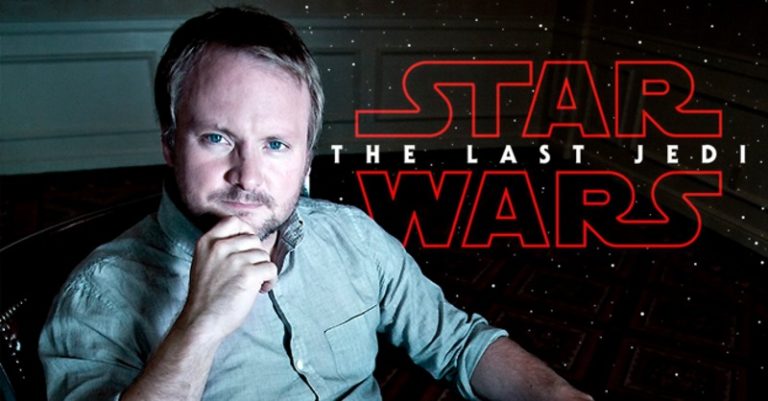
Rian Johnson has gone from Indie auteur (Brick, Brothers Bloom) to Blockbuster auteur (Looper, Star Wars: The Last Jedi, Untitled New Star Wars Trilogy) in what seems like light speed fashion.
His journey from film school to the indie market was a longer trek, but once the buzz of those early films hit, Hollywood quickly came calling.
Here we take Johnson's best nuggets of screenwriting wisdom found in video and print interviews and elaborate on how screenwriters can apply them to their own journey.
"You never know who you're going to give it to, who might like it, and who might give it to who... there's no way to predict the chain reaction to get it to someone who will be useful."
In a video interview with Making Of, Johnson detailed his long journey from film school to his first feature — the indie hit Brick. It took him over six years to get that screenplay of his finally made.

Marketing plans are smart to have. Screenwriters need to do their research and market their scripts to the right people that best match up with their work. But in the end, you'll never know who will respond to those scripts and who won't. You'll never know who they will share them with either.
So he strongly suggests that you share your screenplays with anyone and everyone that you can. It doesn't always have to be those specific agents, managers, and producers that you earmark during your research. It could be a neighbor, friend, or coworker who knows someone in the business. It could be a casual acquaintance that has some sort of connection.
Read ScreenCraft's Maps Screenwriters Can Use to Build Their Industry Network!
While you should certainly market to industry insiders that you've found or have networked with, don't stop there. You never know who is looking for what you have.
"You find a connection to your characters, get inside their head... you find a way into them, you find a way to bring them to life by connecting them up with something inside you — and then at some point they start living on their own and then your job is to stay honest to what they are doing."
Johnson was specifically asked how he creates and develops characters. He was adamant that this type of process — while it may seem silly to some — is one hundred percent how his character development works.
Too many screenwriters try to plot out the motivations, actions, and reactions of their characters as simply just that — plot points. Developing characters that have true depth is less about filling in a blank within the plot and more about letting those characters breathe. And once they breathe, they become filled with life. And then once you get into their "heads" and put them up against whatever conflict you throw at them, only then will those characters truly come alive.
"I write sporadically and badly with no rhyme or reason."
Johnson was asked about his writing habits. It was clear that he had no specific routines. He did say that, "The middle of the night is the best time to write because you know the phone's not going to ring, you're never going to have appointments with anybody. It's quiet time where the rest of the world is dead." While he states a specific time for when he likes to write, it was clear that he felt that it's likely different for each individual.
Great writing isn't about punching into a time clock. It isn't like working in a warehouse or on a production line where you clock in, perform certain tasks, and then clock out knowing that you've done your work.
Sometimes you'll set aside time to write and the words will never come. Sometimes you'll sit on that chair in a coffee shop, library, or Barnes and Noble and literally write nothing. But then sometimes, when you've done the work inside of your head and you've let ideas, concepts, and characters linger for a bit, you will suddenly find yourself typing faster than you can think.

"When you get an idea, there is a definite point when it comes to life or doesn't."
Some ideas are just interesting items that your mind will ponder. Most don't go beyond that. Others grab hold of you. You know when an idea is worthy when you can't stop thinking about it. It pulls you in by the shirt and never lets go.
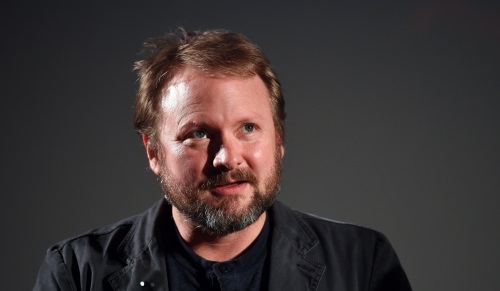
"It has to connect with something I deeply care about," Johnson elaborated. "You have very little control over what the next thing is."
That notion can give some screenwriters comfort while others may feel trepidation as to the thought of having to trust themselves to see the signs. In the end, you'll know.
"When I'm writing I definitely have a type of music I'm listening to."
Music is an important part of the screenwriting process. Cinema relies on it. Music creates an attitude, an atmosphere, a certain tone, and a certain vibe.
You can choose temp tracks from other movie soundtracks to write specific scenes to. You can find music that best defines the type of character that you are writing. It gives screenwriters a context and offers a cinematic environment as they are creating stories, scenes, sequences, and moments.
"Find your voice... and stick to that."
Screenwriters are often made to feel that they need to chase the trends. They are even told within guru books and writing conferences that they should stick to certain genres and emulate what has been successful before.
"Don't give into the temptation of shaping yourself around some sort of perception of what the market wants," Johnson advised.
He went on to explain that in the short term, it's going to feel like that is what is keeping you back, but eventually — if and when things fall into place and you're given opportunities — that is what will stand out about you. Your unique voice. It's only a Catch 22 if you make it into a Catch 22. Persistence will always outweigh chasing the market and trying to be someone you're maybe not — or don't want to be.
"Reading and writing are the only two ways to get better."
During a Campus Movie Fest Workshop with John August, Johnson offered this advice to students.
The best way to hone your craft is to do. Studying will only get you so far. Reading about writing will only get you so far. If you're a screenwriter, you need to be reading and writing screenplays. If you're a filmmaker, you need to be watching and making films. When you're writing, they don't have to be masterpieces. They don't all have to be sent out and marketed. They just have to be you doing what you want to be doing, learning from your mistakes, and applying those lessons for the next draft, the next script, or the next film.
Anything you can do from a storytelling perspective — big and small, good and bad — will help you better yourself as a writer and filmmaker.
"I’m a big believer in having an idea or having ideas and just tucking them away in the back of your brain. Even if you aren’t consciously thinking of them, I think they simmer. You’re working on them, even if you don’t know you’re working on them, and I think having something in your head for a while is a valuable thing."
Johnson spoke with The A.V. Club and offered this sound piece of advice that most don't recognize as much as they should. Ideas are seeds. You have to take those seeds and be gentle and patient with them. You water them by watching movies, reading scripts, reading books, and watching compelling television. They will slowly start to grow. Additional concepts and ideas will be tacked onto them in time and those seeds will grow from an idea to a concept. Then from a concept to a moment. Then from a moment to a story. And so on.
"Editing is so useful in terms of improving your writing. It’s just the process of putting it together, then paring it down and getting the story down to the bare bones. It’s just an incredibly instructive process."
When he spoke with No Film School, he pointed to editing as a strong tool to use to hone your writing skills. Many screenwriters get so married to their words that they hesitate cutting anything substantial in fear of losing their voice, story, and characters. But the process of paring down your words actually helps you to find the core of those script elements.
It's much like a sculptor who has a slab of clay. They slowly scrape and scrape and scrape the clay away until they finally find what they've been looking for. That's what screenwriters need to do.
The strongest scripts are those that have been edited to the core.
"Read great stuff that has nothing to do with anything you’re writing."
In an article he wrote for Film School Rejects, Johnson offered this truly brilliant and eye-opening gem.
He went on to explain, "I’m in that phase right now where I’m fishing for the next idea, so this is the first tip I thought of. But it’s applicable at all points in the process I think. When I’m looking for inspiration, in addition to looking at sources that line up with my idea I try to cast my net wide and into weird waters. If you’re working on a western, read a biography of Einstein, or if you’re working on a horror movie dig into some Jung, or a history of the French revolution, or some Tolstoy short stories. Anything that sparks your interest, and as far afield from your own idea as possible. Because when you’re reading a book that has nothing to do with your movie and you hit that one paragraph that somehow miraculously has everything to do with your movie, it’s like striking gold. That’s the kind of unique inspiration that can really start things up."
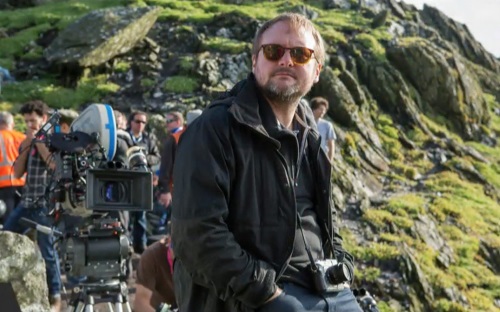
Some amazing and inspiring advice from one of the industry's marvels. Rian Johnson is one of the most humble figures in Hollywood right now. While he's become this cinematic titan with a breakthrough science fiction film followed by his role as the new head of the future of Star Wars, he still comes off as that screenwriter and director who just wants to tell great stories.
He's walking proof that persistence counts. He likes to get into the heads of his characters and let them take the lead. He's humble about his own process. And he's a champion for original and authentic voices. Screenwriters can learn a thing or two from him and hopefully you have here.
Ken Miyamoto has worked in the film industry for nearly two decades, most notably as a studio liaison for Sony Studios and then as a script reader and story analyst for Sony Pictures.
He has many studio meetings under his belt as a produced screenwriter, meeting with the likes of Sony, Dreamworks, Universal, Disney, Warner Brothers, as well as many production and management companies. He has had a previous development deal with Lionsgate, as well as multiple writing assignments, including the produced miniseries Blackout, starring Anne Heche, Sean Patrick Flanery, Billy Zane, James Brolin, Haylie Duff, Brian Bloom, Eric La Salle, and Bruce Boxleitner. Follow Ken on Twitter @KenMovies
For all the latest ScreenCraft news and updates, follow us on Twitter and Facebook!
Tags
Get Our Screenwriting Newsletter!
Get weekly writing inspiration delivered to your inbox - including industry news, popular articles, and more!


